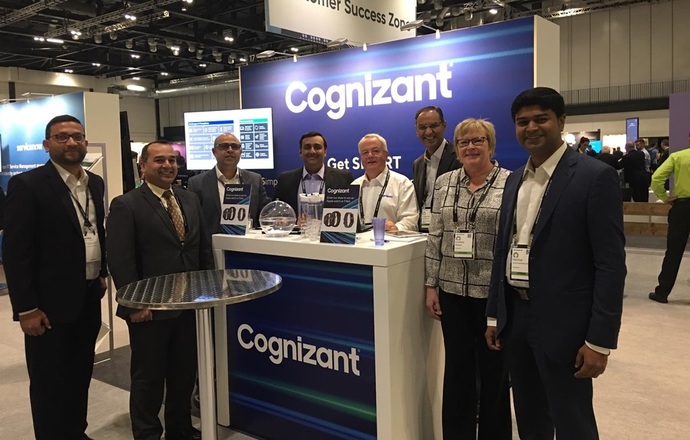
Cognizant has significantly deepened its footprint in the Microsoft ecosystem with the acquisition of 3Cloud, a U.S.-based consultancy focused exclusively on Microsoft Azure and Azure-powered AI solutions. The deal, for which financial terms were not disclosed, is positioned by both companies as a way to meet accelerating enterprise demand for cloud-native AI transformation on Azure.
3Cloud is regarded as one of the largest independent Azure-focused services providers, with a portfolio that spans data and AI, application innovation, modern cloud platforms and managed services. Its client base is heavily weighted toward large enterprises across banking and financial services, healthcare, technology and consumer industries, sectors that are currently investing heavily in cloud and AI infrastructure.
For Cognizant, the acquisition is framed as a strategic step in its broader push to become a primary partner for enterprise AI readiness and modernization on hyperscale platforms. The company already employs tens of thousands of Azure-certified professionals globally; the addition of 3Cloud brings more than 1,000 Azure specialists, over 1,500 Microsoft certifications and nearly 1,200 employees in total, including roughly 700 in the United States. Once integrated, Cognizant will have close to 20,000 Azure-certified associates worldwide.
Ravi Kumar S, CEO of Cognizant, described the move as a way to align more closely with client demand for AI-led transformation on Microsoft’s cloud. According to Kumar, organizations are looking for partners that can not only migrate workloads to Azure but also help them build, deploy and scale AI solutions in production environments. By bringing in 3Cloud’s Azure-centric engineering capabilities, Cognizant aims to offer a more complete stack of services that spans initial strategy and readiness assessments through to data platform modernization, AI model development, cloud-native application engineering and ongoing operations.
The transaction also reflects the continued growth trajectory of Azure itself. Microsoft has reported strong double-digit expansion in Azure and related cloud services, driven in part by generative AI, large language models and increased demand for GPU-accelerated infrastructure. 3Cloud has grown organically at around 20% compound annual growth since 2020 and expects to sustain growth above 20% in 2025, supported by enterprise projects that bundle cloud migration, analytics and AI enablement on Azure.
Microsoft Partner of the Year Awards
Founded by former Microsoft executives, 3Cloud has built its business as a specialist in Azure-only engagements, with an emphasis on deep technical skills and close alignment with Microsoft’s product and partner teams. The company has received multiple Microsoft Partner of the Year awards across categories including Data & AI, Health & Life Sciences, Migration to Azure, Solution Assessments and Modernizing Applications. It was named Microsoft’s 2025 U.S. Channel Partner of the Year and 2024 Americas Partner of the Year for Data and AI. Beyond Microsoft, 3Cloud is an Elite Databricks partner, reflecting its role in data engineering, lakehouse architectures and AI workloads running on Azure Databricks.
Cognizant itself is a long-standing strategic partner to Microsoft and has accumulated a series of recent partner awards, including recognition in intelligent automation and systems integration, as well as GitHub-based AI services. The acquisition of 3Cloud is expected to increase Cognizant’s influence over Azure Consumption Revenue, positioning the combined entity as one of the larger global partners in Microsoft’s channel in terms of cloud usage driven or supported.
Microsoft has publicly endorsed the transaction. Judson Althoff, Chief Executive Officer of Microsoft’s Commercial Business, characterized Azure as a preferred platform for AI transformation and said the integration of Cognizant and 3Cloud would create one of the more capable and credentialed partner combinations in the Azure ecosystem. The company sees a growing need for partners that can help customers operationalize AI on Azure, rather than treating AI pilots and proofs of concept as standalone efforts.
From an enterprise buyer’s perspective, the deal underscores several trends. First, AI and cloud are increasingly being procured as a combined agenda rather than separate tracks. Organizations are consolidating around a limited set of hyperscale platforms and expecting partners to bring reference architectures, accelerators and domain-specific patterns that shorten time-to-value. Second, the bar for “cloud transformation” has shifted from basic lift-and-shift to more engineering-intensive programs that include data modernization, event-driven architectures, API ecosystems and integration of AI into line-of-business applications. Third, skills scarcity in cloud and AI remains a constraint, and acquisitions such as this one are a way for large integrators to aggregate certified talent and niche expertise at scale.
3Cloud’s delivery model is built around an Azure-certified global team focused on modern data platforms, cloud-native AI application development, advanced analytics and managed services. Its emphasis on engineering-heavy projects is expected to complement Cognizant’s broader consulting and industry solutions portfolio. The combined entity will be able to support customers through strategy and advisory work, platform build-out, migration, AI model development, MLOps and long-term operations on Azure.
The transaction is expected to close in the first quarter of 2026, subject to regulatory approvals and customary closing conditions. Until then, both companies are likely to continue operating independently while planning integration of their go-to-market approaches, delivery models and partner engagement with Microsoft and Databricks.
For Microsoft, the emergence of larger, more specialized Azure partners is aligned with its strategy to push AI deeper into enterprise operations. For Cognizant, absorbing 3Cloud is a bet that enterprise AI transformation will be anchored on hyperscale platforms and will demand concentrated expertise in a smaller number of clouds, with Azure at or near the top of that shortlist.
Executive Insights FAQ: Microsoft Azure and AI
How is Microsoft Azure positioned for enterprise AI workloads?
Microsoft Azure offers a broad portfolio for AI, including Azure OpenAI Service for large language models, Azure Machine Learning for model lifecycle management, and a range of GPU and specialized compute instances. For enterprises, its appeal lies in the ability to integrate AI with existing Azure services such as data lakes, SQL databases, Kubernetes, security and identity, all within a single cloud environment.
What role do partners like Cognizant and 3Cloud play in Azure-based AI projects?
While Azure provides the platform and native services, partners typically handle strategy, architecture, data preparation, model development, integration into business applications and long-term operations. They translate Azure’s building blocks into production-grade solutions aligned with specific industry and regulatory requirements, which many enterprises lack the internal capacity to do alone.
Why is data modernization so critical for AI initiatives on Azure?
AI models are only as effective as the data they are trained and run on. On Azure, this often means consolidating data into modern platforms such as Azure Data Lake Storage, Azure Synapse or Azure Databricks, implementing robust governance, and establishing streaming and batch pipelines. Without that foundation, AI efforts tend to stall at proof-of-concept stage.
How does Azure support governance and security for AI at scale?
Azure integrates AI services with enterprise-grade identity and access management via Entra ID (formerly Azure AD), role-based access controls, Key Vault for secrets, and tools for monitoring and compliance. Capabilities such as Responsible AI controls, content filters and audit logging help organizations manage risk and meet internal and external governance standards while adopting AI.
What should enterprises consider when choosing Azure as their primary AI cloud?
Key factors include existing Microsoft footprint, integration with tools like Microsoft 365 and Dynamics, latency and region coverage, available GPU capacity, and the ecosystem of Azure-specialized partners in their industry. Organizations should also evaluate total cost of ownership, data residency requirements and support for hybrid or multicloud scenarios where not all workloads can move to Azure immediately.


